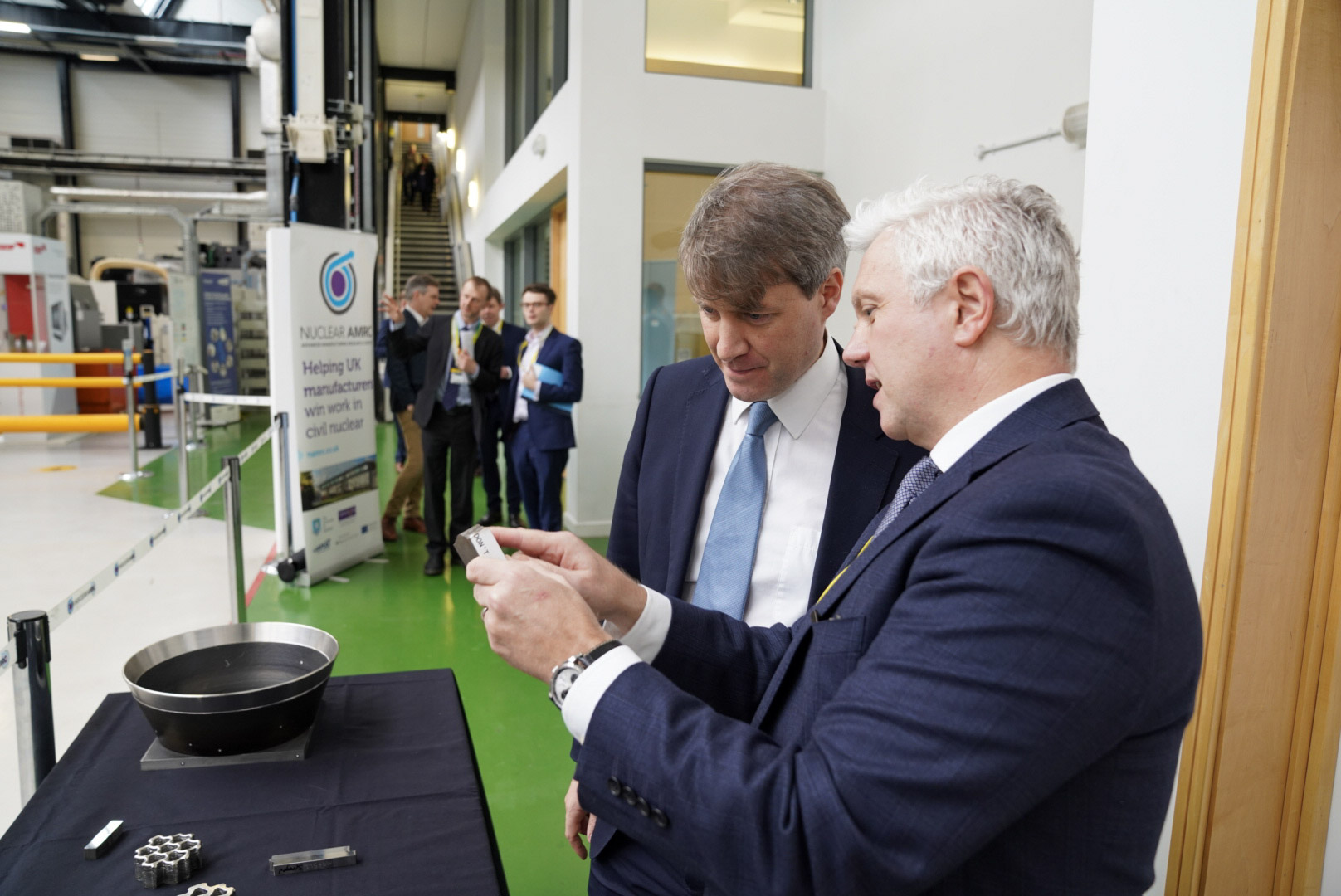At Sheffield Hallam University, we have a strong tradition of supporting the local region and recognise the importance of tackling regional skills gaps to level up the nation’s workforce and increase productivity.
Through our higher and degree apprenticeship programme, recently rated good by Ofsted, we work with over 500 employers to address higher-skills gaps and deliver both social and economic impact.
What are higher and degree apprenticeships?
Higher and degree apprenticeships are an alternative way of gaining a degree while working in a related job. Apprentices divide their time between university-based learning and on-the- job training with their employer.
Sheffield Hallam University is one of the country’s leading providers of higher and degree apprenticeships and home to the National Centre of Excellence for Degree Apprenticeships (NCEDA). More than 2,000 degree apprentices are studying on the widest range of apprenticeship courses in the country.
How do they help grow the regional economy?
Apprenticeships are developed by employers, universities, and professional bodies to address regional and national skills needs.
At Sheffield Hallam, there are apprenticeships in sectors including healthcare, construction, IT and engineering – all of which are vital for our regional economic prosperity.
They can also transform the lives of apprentices. In 2021, 44 per cent of Sheffield Hallam’s apprentices were from geographical areas with the lowest number of young people participating in higher education, almost 10 per cent higher than the national average.
More than half were over the age of 21 when they started, with around 15 per cent over the age of 35 and wanting to upskill or start a new career.
A vote of confidence in our region
Sheffield Hallam’s degree apprenticeship programme was recently inspected by Ofsted, receiving a good rating across the board.
Inspectors praised the way the University works with employers and leaders in the Sheffield City Region to ‘identify and address skills needs’ to deliver an ambitious curriculum across a range of apprenticeships that address local and national priorities.
Professor Kevin Kerrigan, the University’s pro vice-chancellor for Business and Enterprise, said of the rating: “University leaders have taken a range of deliberate and meaningful steps that are having a positive impact on the quality of apprenticeship education, including partnerships with employers to create a purposeful and supportive learning environment for apprentices.”
Professor Conor Moss, dean of work-based learning, added: “The positive comments from the inspectors about our commitment to the region and providing apprenticeships that address local and national priorities in partnership with employers echoes our wider ambitions.”
What the apprentices say
Cherri Chan, Packaging Developer at Unilever and studying a degree apprenticeship in packaging: “I chose to do a degree apprenticeship because I wanted to gain industry experience and learn from experts. I have learnt a lot of skills, and I’ve been able to put those skills into practice and see real-time progress.
“My personal aspirations are to build my knowledge and skills to become a packaging expert and contribute to having a positive impact on the environment.” 
Hafsa Ali, Manager at Morrisons and degree apprenticeship graduate in management: “I’m a practical person, so the idea of sitting in lectures all day really put me off the traditional university route. For me, choosing to complete a degree apprenticeship was an easy option as I am able to study towards a degree without the university fees while gaining real-life, paid work experience.
“I started out running a small department of five individuals, and now I oversee 40 colleagues and five team leaders. I have come incredibly far from the shy individual I was when I first started this journey.” 
What the employers say
Julie Harris, L&D business partner in Operations and Early Careers, Premier Foods: “We want to nurture young talent for the future, specifically in STEM areas where it’s harder to find the skills we need. Apprentices bring a new perspective, robust challenges to ways of doing things and a diversity of thinking that we embrace. ‘
Richard Cowlishaw, chief people officer, Clipper Logistics: “By implementing this apprenticeship programme with Sheffield Hallam, we expect to improve the future of logistics — with a significantly more knowledgeable intake of candidates boasting real-world experience.”
Get in touch: Call 0114 225 5000, email business@shu.ac.uk or visit shu.ac.uk/business








